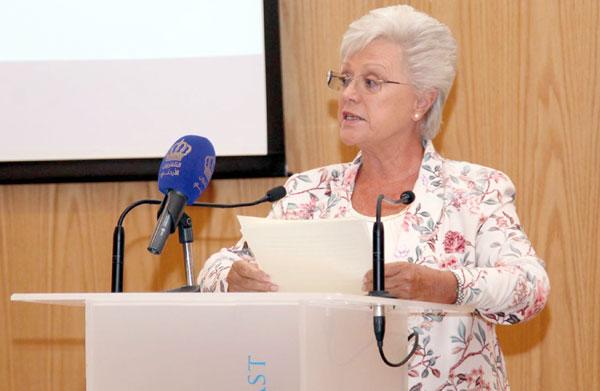You are here
Nurses continually challenged with new, emerging issues — Princess Muna
By Laila Azzeh - Jul 25,2017 - Last updated at Jul 25,2017

HRH Princess Muna attends the 3rd Global Nursing and Midwifery Clinical Research Development Initiative Summit in Amman, on Monday (Petra photo)
AMMAN – While making up the vast majority of healthcare providers and being in the frontline in times of humanitarian crises, nurses still face challenges that affect the overall quality of healthcare, experts said on Monday.
Participants from 22 countries met in Amman for the 3rd Global Nursing and Midwifery Clinical Research Development Initiative Summit, a two-day platform for experts from the southern and eastern African and eastern Mediterranean regions to discuss issues related to clinical research and ways to improve health services in the midst of conflicts and wars.
The event is organised by the Columbia Global Centres in Amman in cooperation with New York’s Columbia University School of Nursing.
In her opening remarks, HRH Princess Muna said that the workforce of nurses and midwives is “continually challenged with new, emerging issues”.
“These challenges require nurses to be responsible for advocating to their people… we need to create the evidence that investment in nurses and midwives has a direct impact on the health outcomes,” highlighted the princess, the patron of Nursing and Midwifery in the Eastern Mediterranean Region and president of the Jordan Nursing Council.
She underlined the need for nurses and midwives to “transform” the clinical research agenda and “take it forward” to improve nursing practice and quality of care, stressing the significance of the summit in bringing experts together from across the region to network and address differences in implementation, with a desire for change.
During the gathering, the experts are discussing ways to conduct clinical research in environments of political and economic uncertainty, social upheaval and escalating humanitarian crises, in an effort to bring together two regions facing similar challenges, in order to identify, prioritise and gain consensus on how to address critical health needs.
Health Minister Mahmoud Sheyyab underlined the importance of focusing on clinical research in the two regions in light of the challenges they are facing, citing the ministry’s efforts to organise the nursing profession and draw up regulations that improve human resources and develop their technical capabilities in cooperation with the Jordan Nursing Council, the Jordan Nurses and Midwives Association and the Health Care Accreditation Council.
The first two summit meetings focused on priority gaps in the clinical research of each individual region, first focusing on southern and eastern Africa in 2015, and then the eastern Mediterranean region in 2016.
Safwan Masri, director of the Columbia Global Centres in Amman, expressed hopes that the participating experts would share ideas and knowledge, saying that creating a regional discourse on healthcare is essential in supporting health services.
Jennifer Dohrn, associate professor, and Bobbie Berkowitz, dean and professor at theColumbia University School of Nursing, also underscored the importance of the final summit in enabling participants to reach consensus on clinical research priorities in their respective regions in order to ensure better health policies and healthcare outcomes.
Related Articles
AMMAN — Jordan will host experts from 22 countries for a global nursing and midwifery summit on Monday under the patronage of HRH Princess M
AMMAN — A global nursing and midwifery summit, to be held in Amman on July 24-25, will address large global health disparities and the devel
AMMAN – Recognising the role of nurses as the “backbone” of the healthcare system, leaders in the profession are examining the needs and cha













